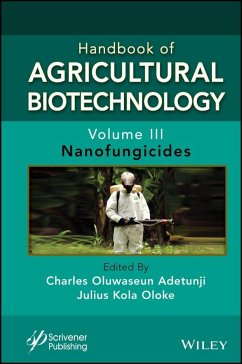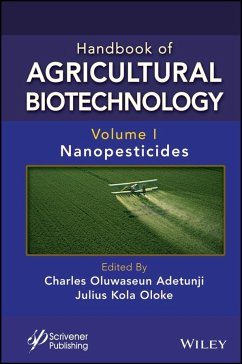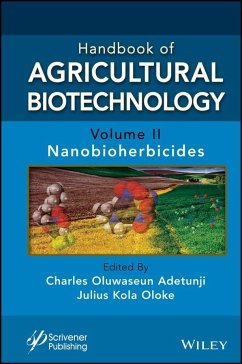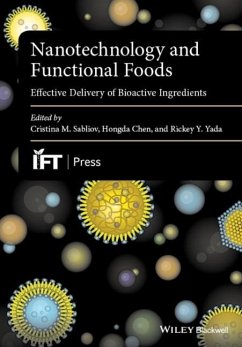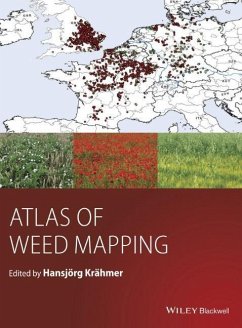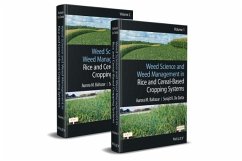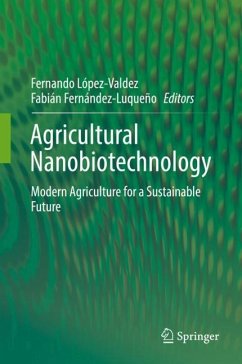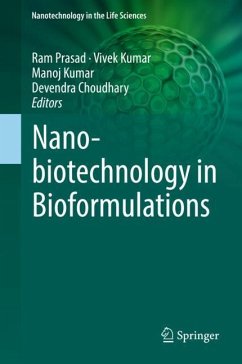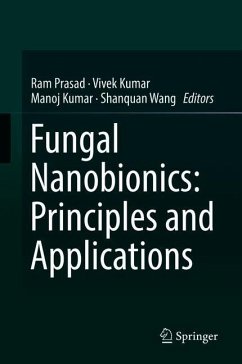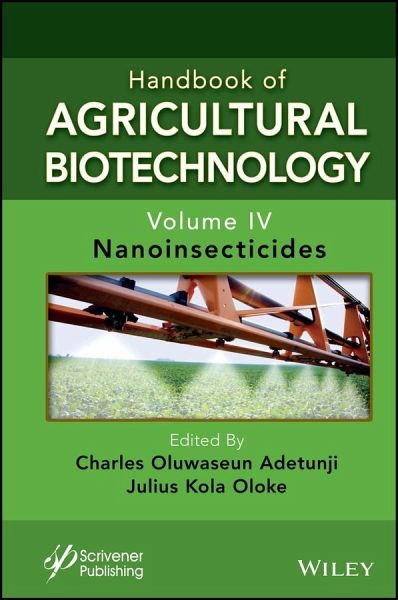
Handbook of Agricultural Biotechnology, Volume 4
Nanoinsecticides
Herausgegeben: Adetunji, Charles Oluwaseun; Oloke, Julius Kola
Versandkostenfrei!
Versandfertig in über 4 Wochen
201,99 €
inkl. MwSt.
Weitere Ausgaben:

PAYBACK Punkte
101 °P sammeln!
Handbook of AGRICULTURAL BIOTECHNOLOGYThe book provides detailed information about the application of repellent products that contain plant-based ingredients known as nanobioinsecticides, including the pesticide evaluation scheme guidelines for repellent testing, relevant information about the procedures to evaluate several repellent compounds, the development of new products that offer high repellency, and guidelines for consumer safety.The chapters of volume IV of this set, focus on a wide range of related topics. They chronicle many traditional repellent plants that could be used in ethnobo...
Handbook of AGRICULTURAL BIOTECHNOLOGY
The book provides detailed information about the application of repellent products that contain plant-based ingredients known as nanobioinsecticides, including the pesticide evaluation scheme guidelines for repellent testing, relevant information about the procedures to evaluate several repellent compounds, the development of new products that offer high repellency, and guidelines for consumer safety.
The chapters of volume IV of this set, focus on a wide range of related topics. They chronicle many traditional repellent plants that could be used in ethnobotanical studies and provides valuable insight into the development of new natural products. It outlines the standardization and numerous investigations used to affirm the level of repellent compounds from various plants. Furthermore, it details the safety, efficacy, and facts about plant-based repellent testing, and reviews new developments in the field.
The book also explores the sustainable techniques involved in the structural elucidation and characterization of active constituents found in nanobioinsecticides, and gives relevant information on the use of essential oils, derived from plants, in the preparation of nanobioinsecticides.
Audience
The book is a useful resource for a diverse audience, including industrialists, food industry professionals, agriculturists, agricultural microbiologists, plant pathologists, botanists, microbiologists, biotechnologists, nanotechnologists, microbial biotechnologists, farmers, policymakers, and extension workers.
The book provides detailed information about the application of repellent products that contain plant-based ingredients known as nanobioinsecticides, including the pesticide evaluation scheme guidelines for repellent testing, relevant information about the procedures to evaluate several repellent compounds, the development of new products that offer high repellency, and guidelines for consumer safety.
The chapters of volume IV of this set, focus on a wide range of related topics. They chronicle many traditional repellent plants that could be used in ethnobotanical studies and provides valuable insight into the development of new natural products. It outlines the standardization and numerous investigations used to affirm the level of repellent compounds from various plants. Furthermore, it details the safety, efficacy, and facts about plant-based repellent testing, and reviews new developments in the field.
The book also explores the sustainable techniques involved in the structural elucidation and characterization of active constituents found in nanobioinsecticides, and gives relevant information on the use of essential oils, derived from plants, in the preparation of nanobioinsecticides.
Audience
The book is a useful resource for a diverse audience, including industrialists, food industry professionals, agriculturists, agricultural microbiologists, plant pathologists, botanists, microbiologists, biotechnologists, nanotechnologists, microbial biotechnologists, farmers, policymakers, and extension workers.




